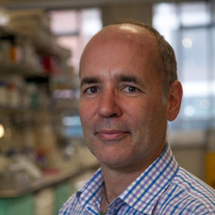Barts Cancer Institute (BCI) has reimagined its MSc Cancer Sciences, uniting four former programmes into one with flexible pathways. Students gain a strong foundation in cancer biology while specialising in areas such as immunotherapy, genomics, and bioinformatics. The programme blends modern cancer sciences, employability, and community to prepare graduates for careers in research, clinical practice, and healthcare.
The MSc Cancer Sciences at Barts Cancer Institute (BCI) has recently undergone a significant transformation. Programme Director Professor Richard Grose explains that the aim was to simplify the structure while enriching opportunities for students to specialise.
Previously, the Institute offered four separate master’s programmes. While valuable, this arrangement risked confusing prospective students, leading to multiple applications. The new MSc Cancer Sciences consolidates these routes into a single-entry point, offering all students a strong foundation in cancer biology while allowing them to tailor their studies.
“We wanted to clarify what we were offering,” says Professor Grose. “Now students can build their expertise in the areas that most inspire them, while still developing the broad understanding and core skills we believe are essential.”
Embracing opportunities in curriculum review
This redesign prompted the teaching team to reflect on the programme design as a whole. According to Professor Grose, the process was both refreshing and necessary.
“One of the challenges of modular programmes is that different teams develop modules independently. That can sometimes lead to overlap, or even gaps, in the curriculum,” he explains. “Taking a step back allowed us to ask: what are we covering, what’s missing, and how can modules blend together more effectively?”
The review also offered the chance to bring the latest scientific developments into the classroom. Over the past decade, cancer research has advanced dramatically in areas such as immunotherapy, genomics, and early detection. New modules now address these shifts, including applied immunotherapy, cancer screening & clinical trials, and bioinformatics.
“These additions ensure our students are learning from the latest science and clinical practice,” says Professor Grose. “For example, immunotherapy has transformed treatment in the last ten years, and it’s vital that graduates understand this landscape.”
Preparing students for future careers
Employability is at the heart of the new design. The programme equips students with both specialist knowledge and transferable skills relevant across sectors.
Professor Grose highlights the importance of bioinformatics as one example. “We live in the age of big data. Students may not want to do an entire master’s in data science, but they still need to understand genomic datasets and analytic approaches. Our modules give them that grounding while maintaining their breadth of study.”
The course also capitalises on the close integration of clinicians and basic scientists at BCI. Students learn from experts who are leading clinical trials or pioneering new therapies, gaining insight into the realities of research and treatment. Many go on to roles in trials management, laboratory science, or further study, supported by these connections.
Innovating learning and teaching
Beyond content, the new programme aims to foster a more relational learning experience. Students continue to benefit from lectures delivered by internationally recognised experts, while equal emphasis is placed on interaction and active engagement.
Workshops, seminars, and opportunities to hear from PhD researchers add variety and accessibility. “It inspires students when they realise the person they’ve just heard on the news is the same person teaching their module,” says Professor Grose.
Assessment and feedback have also evolved. Formative opportunities such as quizzes and feedback workshops give students regular checkpoints, while multimodal feedback, including bespoke recorded audio, helps them feel directly supported. Clear marking rubrics ensure transparency and consistency.
These changes, in addition to co-creating the online MSc Cancer Sciences with the Digital Education Studio, also enhance the experience for distance learners. Online discussion boards, physical and virtual contact hours, and interactive tools already provide flexibility and connection, and the teaching team continues to explore new ways of sustaining engagement throughout the year.
Building a learning community
Cancer Sciences attracts a diverse cohort, including international and home students, recent graduates, and professionals returning to study. A sense of community is therefore vital.
Group work in, for example, Research Methods, helps students develop teamwork skills essential for future careers. Alumni networks also play a key role. The student-run Cancer Research Society organises events where graduates share their career journeys.
“These sessions often spark the best discussions,” says Professor Grose. “Students sometimes feel more comfortable asking questions of alumni, who they see as peers, than they do of academics. It creates a welcoming and inspiring atmosphere.”
The challenge of bringing together on-site and online students remains, but the programme team is committed to experimenting with formats that foster interaction across this blend of learners.
Personalised learning, professional skills
For Professor Grose, the essence of the MSc Cancer Sciences is the balance between breadth and personalisation.
“In cancer treatment we talk about personalised medicine. I think this programme reflects personalised learning,” he explains. “Students can explore the full landscape of cancer sciences and then pursue the topics that really matter to them.”
Graduates leave not only with specialist knowledge, but also a toolkit of transferable skills — from data analysis to presenting research and designing posters — that will serve them in academia, healthcare, or industry.
“Whatever path they take, we want them to feel confident and well prepared,” concludes Professor Grose.
